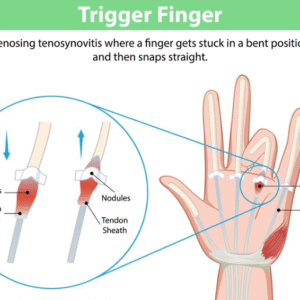Patients suffering from TMJ are susceptible to acute pain, which comes and go. Moreover, some patients develop frequent flare-ups that can last a couple of days. In severe cases, people can experience debilitating pain and inflammation, which is when it becomes critical to see an orthodontist.
It’s vital to understand that delaying treatment for TMJ can lead to a further deterioration of your jaw, which may consequently inhibit you from living a quality life. While there are a bunch of home remedies you can lean on to relieve mild pain and possibly reduce your flare-ups, it’s still strongly recommended that you see a qualified professional.
A Brief Glimpse into TMJ
The temporomandibular joint is what keeps your lower jaw connected to your skull. You can easily feel the joint on both sides of your face under your ears. Just press directly beneath your ear lobes and suck your cheeks in keeping your mouth closed. You’ll feel something moving, that’s the temporomandibular joint. It’s also what allows you to open your mouth, talk, eat, shout, and close your mouth.
The abbreviation of the term is also used to describe a bunch of different medical issues associated with your jaw, and the common abbreviations used today are TMJD or TMD, which are primarily used to differentiate the joint from multiple TMJ issues. One Calgary orthodontist explains that dizziness and headaches can be symptoms of TMJ. Other symptoms are the following:
- Facial pain
- Tenderness in the jaw
- Pain when opening or closing the mouth
- Jaw locking and stiffness
- Pain around one or both ears
- Difficulty chewing
Moreover, TMJ can also be caused by a variety of different factors such as:
- Inadequate joint growth or formation
- Bad habits or lifestyle choices
- Severe jaw injury
- Arthritis
- Grinding your teeth or frequent bruxism
4 Critical Factors that can Cause Acute TMJ Pain
There are a variety of factors that can cause someone to experience a sudden TMJ flare-up, which can lead to severe pain and swelling. While inflammation and muscle exertion are considered the leading causes of acute TMJ pain, there are a variety of physiological reasons that can also result in TMJ flare-ups, which are:
Anxiety and Increased Cortisol Levels
It’s no surprise that stress can have a bad impact on our health, what’s even sadder is that stress has become a normal occurrence in our lives. And when you experience something immensely stressful, your body’s physical response may result in TMJ issues.
How? Well, whenever we’re stressed out, we begin to experience increased muscle tension and cramps in our shoulders, head, and neck. Overtime, this can inadvertently lead to TMJ inflammation. Moreover, stress can also cause a disruption in your sleep cycle, which can in turn lead to clenching and bruxism (teeth grinding), all of which can deteriorate your jaw health.
Bad Posture
If you sit hunched when working for extended periods of time, you can easily and quickly develop poor posture. This leads to inadequate muscle alignment, which can cause shoulder and lower back pain along with headaches, and in some instances, TMJ pain.
Eating Too Much Chewy or Hard Foods
If you have minor TMJ issues, the last thing you should do is eat particularly chewy or tough foods. That’s because hard foods can easily tire your facial muscles leading to fatigue. Moreover, exaggerated jaw movements can also cause debilitating TMJ flare-ups. So, the best way to avoid any pain is to eat slowly, softly chewing your food, and avoid taking bigger bites.
Not Drinking Enough Water
Your body is mostly water (up to 60%), which means adequate hydration is extremely necessary to lubricate your bones, joints, and muscles for optimum functionality. If you don’t drink a lot of water, it’s quite likely that you’ll develop problems in your jaw and/or TMJ inflammation.
Final Words
While there are different reasons that can lead to TMJ disorders, there are also frequent occurrences that can cause acute pain and discomfort. By considering typical causes and factors that lead to symptom outbreaks, you can do things to steer clear of severe pain and inflammation.






